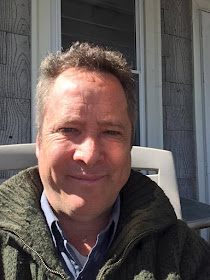 |
| Poet Jeff Weddle |
Come To This by
Jeff Weddle. Nixes Mate Books, 2017, 49 pages.
By Ed Meek
Bill Moyers is currently touting what he calls civic poetry
by which he seems to mean, political poetry or poetry that comments on our
situation now that we’ve elected a plutocrat (as Paxton points out in a recent
essay in Harper’s). That’s right, we’ve
elected someone whose priority is the accumulation of wealth and power for
himself and his clan. It’s true that
right after the election I noticed people were quoting Yeats and Auden and
looking for some way to explain what had happened. In addition to electing a
narcissistic, sexist, racist xenophobe we had given the reigns of government to
the Republican Party whose goal, it appears, is to dismantle the government of
the people and to replace it with a government of, by, and for the rich. Such a
state of affairs demands a response and one response for those of us who remain
children of the enlightenment is to turn to art and poetry. But, it turns out
that civic poetry is not so easy to write.
If the emphasis shifts in art from style and invention to content and
meaning, the aesthetic suffers. Moyers
and organizations like Split This Rock may mean well but the poetry they
promote is not always good.
Jeff Weddle enters this argument and walks a fine line
between poetry that makes a statement artfully and poetry that sometimes lets
us down with language that falls flat.
When it works though, such poetry feels necessary and valuable. Take
“See America First.”
I
am sick like you’re sick and I want to understand.
America,
what have you done to us?
You
are our pimp and pusher
and
sainted church of Big Mac outrage
and
sloganeered righteousness.
Doesn’t that remind you of Ginsberg? It’s refreshing to read
someone addressing the country as a whole in this era when we seem to be two
separate nations as the great Andrew Hacker put it. Weddle goes on to say: “America, this isn’t
working out. /I think we should see other people, America.”
There are a few strong poems about the country in this
section. One is called “Of Course.”
parents
love their children
and
hard work pays off
and
the man who bags
your
groceries never
tortured
a lost hitchhiker
in
his basement
and
buried what was left in his wall
after
making a stew of her parts…
Later in the same poem:
And
no one you know
Goes
to bed hungry…
And
America is number one
And
Jesus loves you
And
voting matters…
Right, voting matters when it is done by the Electoral College
or by a minority of Americans in a majority of states.
Weddle is also able to be upbeat and whimsical in “This
Cool, Green Hour.”
Days
when air holds you
like an absent caress
and
trees stand like answers
to
unasked questions…
Days
when the coffee
in
your favorite cup
tastes
like joy
and
smells like laughter…
Many of the poems are set up with a repeated refrain like
“days when” or lines that begin with “you” or “this” and then the poet “free-associates”
and expands on a theme. It’s Whitmanesque although Weddle lacks Whitman’s
eloquence. Sometimes he’ll just be too tendentious and direct. A poem about a
neighbor who walks his impaired daughter to the bus each morning ends with
these lines: “A great man, unknown./ Time for coffee.”
Selling for the equivalent of two cups of Starbucks at
$9.95, Come to This is, nonetheless,
well worth the price.


